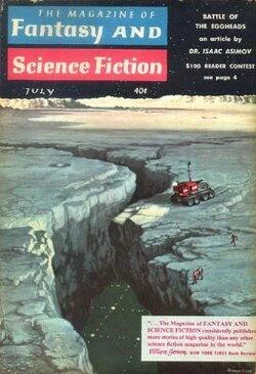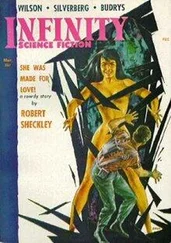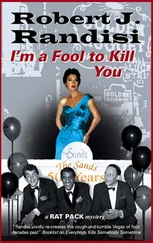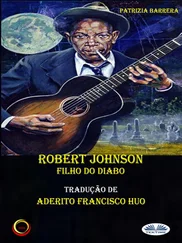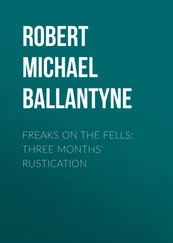Robert Young - To Fell a Tree
Здесь есть возможность читать онлайн «Robert Young - To Fell a Tree» весь текст электронной книги совершенно бесплатно (целиком полную версию без сокращений). В некоторых случаях можно слушать аудио, скачать через торрент в формате fb2 и присутствует краткое содержание. Год выпуска: 1959, Издательство: Mercury Press, Inc., Жанр: Фантастика и фэнтези, на английском языке. Описание произведения, (предисловие) а так же отзывы посетителей доступны на портале библиотеки ЛибКат.
- Название:To Fell a Tree
- Автор:
- Издательство:Mercury Press, Inc.
- Жанр:
- Год:1959
- ISBN:нет данных
- Рейтинг книги:5 / 5. Голосов: 1
-
Избранное:Добавить в избранное
- Отзывы:
-
Ваша оценка:
- 100
- 1
- 2
- 3
- 4
- 5
To Fell a Tree: краткое содержание, описание и аннотация
Предлагаем к чтению аннотацию, описание, краткое содержание или предисловие (зависит от того, что написал сам автор книги «To Fell a Tree»). Если вы не нашли необходимую информацию о книге — напишите в комментариях, мы постараемся отыскать её.
To Fell a Tree — читать онлайн бесплатно полную книгу (весь текст) целиком
Ниже представлен текст книги, разбитый по страницам. Система сохранения места последней прочитанной страницы, позволяет с удобством читать онлайн бесплатно книгу «To Fell a Tree», без необходимости каждый раз заново искать на чём Вы остановились. Поставьте закладку, и сможете в любой момент перейти на страницу, на которой закончили чтение.
Интервал:
Закладка:
She made room for him on the bough, and he sat down beside her, and far below them the tree spread out like a huge upended umbrella, the lights of the village twinkling like colored raindrops along its leaf-embroidered edges. She was thinner, he saw, and paler, and there was a sadness in her eyes.
You tried to kill me, didn’t you? he said, when his breath came back. You didn’t think I could make it up here.
I knew you could make it, she said. Tomorrow is when I’ll kill you. Not tonight.
How?
I—I don’t know.
Why should you want to kill me? There are other trees—if not here, then in some other land.
For me there is only one, she said.
We always make jokes about dryads, he said. Myself and the others. It’s funny though: it never occurred to any of us that if there was such a thing as a dryad, we’d be the most logical people in the galaxy for her to hate.
You don’t understand, she said.
But I do understand. I know how I’d feel if I had a home of my own and somebody came around and started tearing it down.
It isn’t really like that at all, she said.
Why isn’t it like that? The tree is your home, isn’t it? Do you live in it all alone?
…Yes, she said. I’m all alone.
I’m all alone, too, he said.
Not now, she said. You’re not alone now.
No. Not now.
Moonlight washed down through the foliage, spattering their shoulders with silver drops. The Great Wheat Sea was silver now, instead of gold, and a dead tree in the distance showed like the silver mast of a sunken ship, its dead branches empty booms where foliage sails had fluttered, in summer sunlight and warm winds, on spring mornings when the first breeze came up, on autumn afternoons before the frosts…
What did a dryad do, he wondered, when her tree died? She dies, too, she answered, before he had a chance to ask.
But why?
You wouldn’t understand.
He was silent. Then: Last night I thought I dreamed you. After I awoke this morning, I was sure I dreamed you.
You had to think you dreamed me, she said. Tomorrow you’ll think you dreamed me again.
No, he said.
Yes, she said. You’ll think so because you have to think so. If you think otherwise, you won’t be able to kill the tree. You won’t be able to stand the sight of the ‘blood.’ You won’t be able to accept yourself as sane.
Perhaps you’re right.
I know I’m right, she said. Horribly right. Tomorrow you’ll ask yourself how there can possibly be such a thing as a dryad, especially one that speaks English, especially one that quotes poetry out of my mind; especially one that has the power to entice me into climbing over five hundred feet, at the risk of my life, just so I can sit on a moonlit limb talking to her.
Come to think of it, how can there be? he said.
There, you see? It isn’t even morning yet, and already you’re beginning not to believe. You’re beginning to think again that I’m nothing more than a play of light on leaves and limbs; that I’m nothing more than a romantic image out of your loneliness.
There’s a way to tell, he said, and reached out to touch her. But she eluded his hand and moved farther out on the bough. He followed, and felt the bough sag beneath him.
Please don’t, she said. Please don’t. She moved farther away, so pale and thin now that he could hardly see her against the starred darkness of the sky.
I knew you weren’t real he said. You couldn’t have been real.
She did not answer. He strained his eyes—and saw leaf and shadow and moonlight, and nothing more. He started moving back toward the trunk, and suddenly he felt the bough bend beneath him and heard the sound of fibers parting. The bough did not break all at once. Instead it bent in toward the tree and he was able, just before it snapped free, to throw both his arms around the trunk and to cling there long enough to sink his spurs.
For a long time he did not move. He listened to the diminishing swish of the bough’s passage, heard the prolonged whisper of its journey through the foliage far below, the faint thud as it hit the ground.
At last he started down. The descent was unreal, seemed endless.
He crawled into the tent and pulled the campfire in after him. His tiredness buzzed in his brain like a sleepy swarm of bees. He wanted desperately to have done with the tree. To hell with tradition, he thought. He’d finish the delimbing, then Suhre could take over.
But he knew he was lying in his teeth; that he’d never let Suhre touch a cutter beam to so much as a single branch. Felling this tree was no job for an ape. Felling this tree was a job for a man.
Presently he fell asleep, thinking of the last limb.
The Third Day
It was the last limb that nearly got him.
Noon had arrived by the time he had severed the others, and he stopped to eat. He had hardly any appetite. The tree, limbless and graceful for the first two hundred and eighty-seven feet, stubbed and grotesque for the next six hundred and forty-five, green and symmetrical for the remaining ninety, made him sick just to look at it. Only the thought of Suhre climbing into those dying branches made it possible for him to go on. If the thing you loved had to be killed, then it were best for you yourself to do it; for if mercy could be a part of murder, certainly a lover was best qualified to bestow it.
The first limb had finally become the last limb, and extended almost five hundred incongruous feet over the square and the village. After he finished eating, he started walking out on it. When he had paced off three hundred and thirty feet, he affixed the tongs. They were the largest pair the company owned, and, while light, were extremely unwieldy. But he finally got them set up the way he wanted them, and he paused a moment to rest.
The limb was narrow enough at this point for him to see over its edge. He had quite an audience: Wright and Suhre and Blueskies of course, and the timber-carrier drivers; and in addition there were hundreds of colonists, clustered in the streets beyond the roped off area, looking up with wondering faces. Somehow their presence failed to give him the gratifying thrill amateur audiences usually gave him. Instead he found himself wondering what they would do if he were to drop the limb straight down. It would be good for at least a score of houses, and if he were to jump-cut it, it would be good for half that many more.
Abruptly he realized his apostasy and tongued on his transmitter: “Take her up, Mr. Wright.”
The tightened limbline lent the effect of a suspension bridge supported by a single cable. He walked back to the trunk, and when he reached it, got into delimbing position. He drew and aimed his cutter. As he squeezed the trigger, a flock of hahaha birds erupted from the foliage at the limb’s end. “Take her up some more, Mr. Wright.”
The limb groaned, rose slightly. The hahaha birds flew three times around the trunk, then soared up into the crest and out of sight. He cut again. It was the sunward side of the tree, and the sap began to ooze out of the slit and trickle down the trunk. He shuddered, cut some more. “Keep a steady strain, Mr. Wright.” The limb rose, inch by inch, foot by foot. Awesomely, monstrously. Some of the others had been giants; this one dwarfed them. “A little faster, Mr. Wright. She’s twisting my way.”
The limb steadied, rose back, back toward the trunk. He stole a glance below. Suhre and Blueskies had finished cutting the last limb he had sent down into sections small enough for the carrier-winches to handle, and were watching him intently. Wright was standing by the tree-winch, his eyes focused on the rising limb. The square down there had a reddish cast. So had the three men’s clothing.
Читать дальшеИнтервал:
Закладка:
Похожие книги на «To Fell a Tree»
Представляем Вашему вниманию похожие книги на «To Fell a Tree» списком для выбора. Мы отобрали схожую по названию и смыслу литературу в надежде предоставить читателям больше вариантов отыскать новые, интересные, ещё непрочитанные произведения.
Обсуждение, отзывы о книге «To Fell a Tree» и просто собственные мнения читателей. Оставьте ваши комментарии, напишите, что Вы думаете о произведении, его смысле или главных героях. Укажите что конкретно понравилось, а что нет, и почему Вы так считаете.
